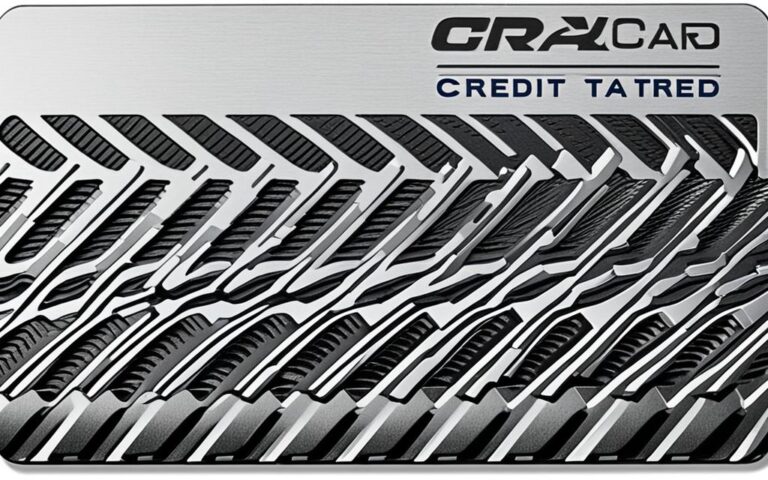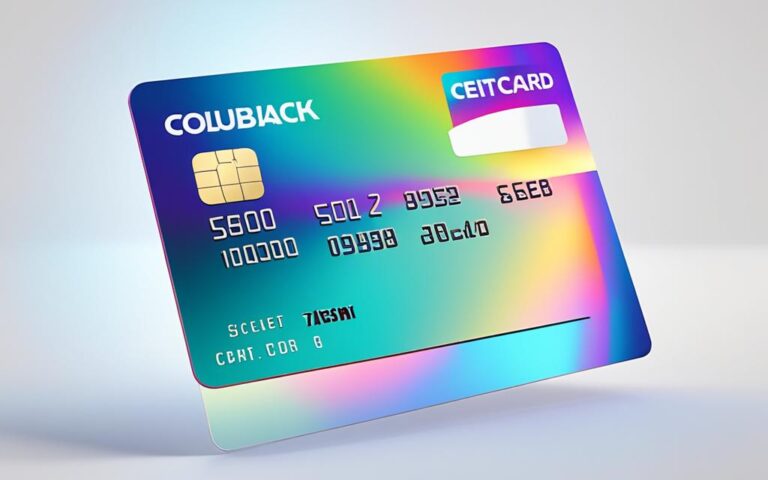Cost of Living in Chicago: Key Expenses Breakdown
Did you know that Chicago is one of the most expensive cities to live in the United States?
Chicago is known for its vibrant city life, cultural attractions, and diverse neighborhoods. However, before considering a move to the Windy City, it’s important to understand the cost of living. This article will provide a comprehensive breakdown of the key expenses associated with living in Chicago, including housing costs, utilities, transportation, groceries, healthcare, and entertainment.
Key Takeaways:
- Chicago is one of the most expensive cities to live in the United States.
- The average rent for a one-bedroom apartment in Chicago is around $1,500 per month.
- Utility costs in Chicago range from $150 to $200 per month.
- Transportation options in Chicago include affordable public transportation and owning a car.
- Grocery costs in Chicago are similar to the national average.
Housing Costs in Chicago
Chicago offers a diverse selection of housing options, from apartments and condos to single-family homes. The cost of housing in the city can vary based on factors such as the neighborhood and the size of the property.
According to recent data, the average rent for a one-bedroom apartment in Chicago is approximately $1,500 per month. For those considering purchasing a home, the average cost of a single-family home in Chicago is around $350,000.
“Chicago’s housing costs are influenced by factors like location and demand. Popular neighborhoods like downtown Chicago or areas with high demand tend to have higher housing costs.”
While these figures provide a general overview, it’s important to note that housing costs can vary significantly depending on location and market conditions. Some neighborhoods may have higher rental or home prices due to their popularity or proximity to amenities.
Comparison of Chicago Housing Costs
For a more detailed understanding of Chicago’s housing costs, let’s compare the average prices of apartments in different neighborhoods:
| Neighborhood | Average Rent for One-Bedroom Apartment |
|---|---|
| Downtown Chicago | $2,200 |
| Lincoln Park | $1,800 |
| Wicker Park | $1,600 |
As shown in the table above, housing costs can vary significantly across different neighborhoods in Chicago. It’s important to consider your budget and priorities when choosing the right area to live in.
It’s also worth noting that rental prices can be higher for larger apartments or those with additional amenities. Similarly, the cost of purchasing a home may vary based on factors such as the size, condition, and location of the property.
By researching the housing market, comparing prices, and working with a knowledgeable real estate agent, you can find a housing option that meets your needs and budget in Chicago.
Utilities in Chicago
When it comes to living in Chicago, it’s essential to consider the cost of utilities. Chicago residents can expect to pay an average of $150-$200 per month for essential utilities such as electricity, gas, water, and internet services.
These costs may vary depending on factors such as the size of the property, the season, and personal usage. For instance, during the winter months, heating costs can contribute to higher utility bills.
While budgeting for utilities, it’s worth noting that some apartment buildings in Chicago may include certain utilities in the rent. This means that tenants won’t have to separately pay for those services. When searching for housing, it’s essential to inquire about the inclusion of utilities to better plan your monthly expenses.
Breakdown of Average Monthly Utility Costs in Chicago:
| Utility | Average Monthly Cost |
|---|---|
| Electricity | $70-$90 |
| Gas | $40-$60 |
| Water | $30-$50 |
| Internet | $50-$70 |
These figures provide a rough estimate of monthly utility costs in Chicago. Individual usage, the size of the property, and other factors can influence the final cost. It’s important to factor in these expenses when planning your budget in order to ensure that you have a realistic understanding of the overall cost of living in Chicago.
Managing Utility Costs in Chicago
To help optimize utility costs, consider implementing energy-saving practices. Some tips for reducing utility expenses include:
- Using energy-efficient appliances and light bulbs
- Sealing air leaks in windows and doors
- Setting thermostats at an optimal temperature
- Utilizing natural light whenever possible
- Taking shorter showers and utilizing water-saving fixtures
By being mindful of your energy usage and adopting these practices, you can not only reduce your environmental footprint but also potentially lower your monthly utility bills.
Transportation in Chicago
Chicago offers residents and visitors a robust and affordable transportation system that makes navigating the city a breeze. Whether you prefer public transportation or owning a car, there are options to suit everyone’s needs.
Public Transportation
Chicago’s public transportation system includes buses and trains that provide convenient access to all areas of the city. The cost of a single ride on public transportation is $2.50, and discounted fares are available for students and seniors. With an extensive network of routes and frequent service, it’s easy to get around Chicago without the hassle of driving and parking.
Using public transportation not only saves money but also helps reduce traffic congestion and air pollution in the city. With the Chicago Transit Authority (CTA) operating various bus and train lines, you’ll have access to popular destinations like museums, shopping districts, and downtown Chicago.
Owning a Car
While public transportation is a popular choice in Chicago, many residents choose to own a car for added convenience and flexibility. However, it’s important to consider the associated costs when factoring in your transportation expenses.
The cost of gas in Chicago fluctuates, but it can add up depending on your commute and driving habits. Additionally, parking in the city can be costly, especially in downtown or high-demand areas. Monthly parking fees can range from $150-$400, depending on the location and facilities.
Insurance is another expense to consider when owning a car in Chicago. The cost of insurance varies based on factors such as your driving record, the type of car you drive, and the coverage you choose.
Transportation Expenses: Budgeting and Planning
When planning your budget and cost of living in Chicago, it’s important to account for transportation expenses. Consider your daily commute, weekly outings, and any additional travel requirements. Evaluate the costs associated with public transportation, owning a car, and parking to determine the most suitable and cost-effective option for your lifestyle.
By factoring transportation expenses into your overall budget, you can make informed financial decisions and ensure a smooth and hassle-free experience getting around the vibrant city of Chicago.
Grocery Costs in Chicago
Grocery costs play a significant role in the overall cost of living in Chicago. When compared to the national average, prices for groceries in the city are quite similar. However, it’s important to keep in mind that these prices can vary depending on the neighborhood and the supermarket you choose to shop at.
Here is a breakdown of the average prices for some common grocery items in Chicago:
| Item | Average Cost |
|---|---|
| Gallon of Milk | $3.50 |
| Loaf of Bread | $2.50 |
| Dozen Eggs | Around $2.50 |
While these prices give you an idea of the average cost, it’s essential to note that they can fluctuate depending on various factors. Certain neighborhoods or specialty stores may charge higher or lower prices, so it’s wise to compare prices and shop with your budget in mind.
In addition to grocery expenses, dining out in Chicago is a popular option for residents and visitors alike. However, it’s important to keep in mind that eating out at mid-range restaurants can be more expensive. On average, a meal at a mid-range restaurant in Chicago can cost around $15-$20 per person.
Stocking Up on a Budget
If you’re looking to save money on groceries in Chicago, consider these tips:
- Compare prices at different supermarkets and shops to find the best deals.
- Create a grocery list and stick to it to avoid impulse purchases.
- Take advantage of sales and discounts offered by stores.
- Buy in bulk for frequently used items to save money in the long run.
- Consider joining a loyalty program or using digital coupons for additional savings.
By being mindful of grocery costs and implementing money-saving strategies, you can effectively manage your expenses and ensure that your overall cost of living in Chicago remains within your budget.
Healthcare in Chicago
When considering the cost of living in Chicago, healthcare expenses are a crucial factor to include in your budget. Fortunately, the healthcare costs in Chicago are in line with the national average, providing residents with access to quality medical services.
The cost of health insurance and medical services will vary based on factors such as age, coverage options, and pre-existing conditions. It’s important to explore the healthcare options available in the city to find a plan that suits your needs.
For detailed information on healthcare costs and consumer expenditures in Chicago, you can refer to the official data released by the Bureau of Labor Statistics.
Healthcare Facilities in Chicago
Chicago boasts a wide range of healthcare facilities, including hospitals, medical centers, and clinics, offering comprehensive healthcare services to residents. Some of the renowned healthcare providers in Chicago include:
- Northwestern Memorial Hospital
- Rush University Medical Center
- University of Chicago Medical Center
- Advocate Christ Medical Center
These facilities are known for their expertise in various medical specialties and their commitment to delivering high-quality care to patients.
Health Insurance Options
When it comes to health insurance in Chicago, residents have a range of options to choose from. Whether you’re looking for employer-sponsored coverage, private insurance plans, or government programs like Medicaid or Medicare, there are options available to meet your healthcare needs.
It’s important to carefully evaluate different plans based on factors such as coverage, premiums, deductibles, and co-pays. Comparing multiple options and understanding the terms and conditions of each plan can help you make an informed decision that aligns with your healthcare requirements.
“Access to quality healthcare is an essential aspect of maintaining a good quality of life. Fortunately, Chicago offers a robust healthcare system, ensuring that residents have access to medical services when they need them.”
| Medical Service | Average Cost (Chicago) | Average Cost (National) |
|---|---|---|
| Doctor’s Visit (Routine) | $100 | $120 |
| Emergency Room Visit | $1,200 | $1,500 |
| Prescription Medication (Generic) | $20 | $15 |
| Medical Test (MRI) | $1,000 | $1,200 |
Table: Average Costs of Medical Services in Chicago (Compared to National Average)
It’s worth noting that the costs listed in the table above are approximate figures and can vary depending on factors such as insurance coverage, healthcare providers, and individual circumstances. Consulting with healthcare professionals and insurance providers can provide more accurate estimates tailored to your specific needs.
By understanding the healthcare costs in Chicago and exploring the available options, you can ensure that you are prepared for any medical expenses that may arise and prioritize your health and well-being while living in the city.
Entertainment in Chicago
Chicago is renowned for its vibrant entertainment scene, offering a multitude of cultural attractions, theaters, museums, and sports events for residents and visitors to enjoy. From Broadway shows to world-class art exhibits, there’s something to captivate every interest and taste.
The cost of entertainment in Chicago can vary depending on the activity and the venue, but it is an essential component to consider when planning your budget in the city. Let’s explore some popular entertainment options and their associated costs:
Theater Performances
Chicago is known as the birthplace of improv comedy and boasts a thriving theater industry. Tickets to a live theater performance can range from $30 to $100 or more, depending on factors such as the production, seat location, and performance date. Keep in mind that world-renowned theaters like the Steppenwolf Theatre and The Second City often offer student discounts and special promotions, making it more accessible to experience the city’s incredible theatrical talent.
Live Music and Concerts
As a hub of music and culture, Chicago hosts an array of live music venues that cater to diverse musical tastes. The cost of attending a live concert can vary significantly depending on the artist, the venue, and demand. General admission tickets for local bands or up-and-coming artists can range from $10 to $30, while tickets for larger, internationally recognized acts may start around $50 and go up from there.
Museums and Art Exhibits
Chicago is home to many world-class museums, including the Art Institute of Chicago, Museum of Contemporary Art, and Field Museum. Admission prices to these institutions typically range from $15 to $30, though some offer discounted rates for students, seniors, and Illinois residents. Additionally, keep an eye out for special exhibition fees, as some featured shows may have an additional cost.
Sports Events
Chicagoans are passionate about their sports teams, whether it’s the Chicago Cubs at Wrigley Field, the Chicago Bulls at the United Center, or the Chicago Bears at Soldier Field. Ticket prices for these professional sporting events can vary greatly depending on factors such as seat location, opponent, and the importance of the game. While prices fluctuate, expect to pay anywhere from $30 to several hundred dollars for a ticket.
These are just a few examples of the entertainment options available in Chicago. It’s important to note that the cost of entertainment can vary, and it’s advisable to check official websites, ticketing platforms, or contact specific venues for the most accurate and updated pricing information.
Stepping out and immersing yourself in the cultural richness and entertainment opportunities that Chicago offers is an integral part of the city’s lifestyle. As you plan your budget, allocating funds for entertainment allows you to experience the best the city has to offer and create lasting memories.

Cost of Living Comparison in Chicago
When comparing the cost of living in Chicago to other cities, it’s essential to consider various factors that contribute to overall expenses. Let’s examine the key aspects that influence the cost of living in Chicago:
Housing Costs
In terms of housing, Chicago may have higher costs compared to some other cities. The average rent for a one-bedroom apartment in Chicago is around $1,500 per month, and the average cost of a single-family home is approximately $350,000. However, it’s important to remember that housing costs can vary depending on the neighborhood and the size of the property.
Utilities
When it comes to utilities, Chicago residents can expect to pay an average of $150-$200 per month, covering electricity, gas, water, and internet services. It’s crucial to factor in these expenses when budgeting for the cost of living in Chicago.
Transportation
Chicago offers an extensive public transportation system, including buses and trains, that is both affordable and convenient. The cost of a single ride on public transportation is $2.50, with discounted fares available for students and seniors. Additionally, owning a car in Chicago means considering expenses such as gas, parking, and insurance.
Grocery Costs
Grocery costs in Chicago are generally in line with the national average. Prices for everyday items such as milk, bread, and eggs hover around $3.50, $2.50, and $2.50 respectively. However, it’s worth noting that prices can vary based on the neighborhood and the supermarket.
Healthcare
Healthcare costs in Chicago align with the national average. The expenses for health insurance and medical services depend on several factors, including age, coverage options, and pre-existing conditions. It’s essential to explore healthcare options available in the city to plan for these expenses adequately.
Entertainment
Chicago is renowned for its vibrant entertainment scene, offering a wide range of cultural attractions and events. The cost of entertainment activities can vary depending on the type of event and venue. For instance, movie tickets typically cost around $12, while tickets to live theater performances range from $30 to $100 or more per person.
While the cost of living in Chicago may be higher in certain aspects compared to other cities, it’s essential to consider the amenities and cultural experiences that the city offers. Chicago’s diverse neighborhoods, thriving arts scene, and endless food options make it an attractive place to live for many.
When deciding whether to move to Chicago or comparing it to other locations, it’s crucial to research and consider your specific needs and priorities. By carefully evaluating the cost of living in Chicago and weighing it against other factors, you can make an informed decision that aligns with your lifestyle and financial situation.
| Expense | Average Cost in Chicago |
|---|---|
| Housing | $1,500 (one-bedroom apartment)/ $350,000 (single-family home) |
| Utilities | $150-$200 per month |
| Transportation | $2.50 per ride (public transportation) |
| Groceries | $3.50 (milk), $2.50 (bread), $2.50 (dozen eggs) |
| Healthcare | In line with the national average |
| Entertainment | Varies depending on the activity and venue |
By considering these factors and conducting thorough research, you can gain a comprehensive understanding of the cost of living in Chicago and make informed decisions about your move or living arrangements in the city.
Conclusion
The cost of living in Chicago can vary depending on individual lifestyle choices and preferences. The city offers a diverse range of housing options, from apartments to single-family homes, accommodating various budgets.
In addition to housing, Chicago boasts a myriad of cultural attractions, including world-class museums, theaters, and sports events, providing ample entertainment opportunities for residents. The city’s robust public transportation system, with its affordable fares, facilitates convenient travel throughout the metropolitan area.
When considering the cost of living in Chicago, it’s crucial to carefully evaluate your financial situation and make a comprehensive budget that encompasses all essential expenses, such as housing, utilities, transportation, groceries, healthcare, and entertainment. By thoroughly assessing your needs and priorities, you can make informed decisions about living in the Windy City and enjoy the vibrant lifestyle it offers.
To learn more about the economic landscape in Chicago, you can refer to the COFA Economic Review Chicago, which provides valuable insights into the city’s economic factors and trends.
FAQ
What are the key expenses associated with living in Chicago?
The key expenses associated with living in Chicago include housing costs, utilities, transportation, groceries, healthcare, and entertainment.
How much does housing cost in Chicago?
The average rent for a one-bedroom apartment in Chicago is around
FAQ
What are the key expenses associated with living in Chicago?
The key expenses associated with living in Chicago include housing costs, utilities, transportation, groceries, healthcare, and entertainment.
How much does housing cost in Chicago?
The average rent for a one-bedroom apartment in Chicago is around $1,500 per month, while the average cost of a single-family home is approximately $350,000.
What is the cost of utilities in Chicago?
The average cost of utilities in Chicago is $150-$200 per month, including electricity, gas, water, and internet services.
What are the transportation options and costs in Chicago?
Chicago has an extensive public transportation system, including buses and trains. The cost of a single ride on public transportation is $2.50, with discounted fares available for students and seniors.
How much do groceries cost in Chicago?
Grocery costs in Chicago are similar to the national average. For example, the average cost of a gallon of milk is $3.50, a loaf of bread is $2.50, and a dozen eggs are around $2.50.
What are the healthcare costs in Chicago?
Healthcare costs in Chicago are in line with the national average. The cost of health insurance and medical services will depend on factors such as age, coverage options, and pre-existing conditions.
How much does entertainment cost in Chicago?
The cost of entertainment in Chicago can vary depending on the activity and venue. For instance, the average ticket price for a movie is around $12, while tickets to a live theater performance range from $30 to $100 or more.
How does the cost of living in Chicago compare to other cities?
When comparing the cost of living in Chicago to other cities, factors such as housing, utilities, transportation, groceries, healthcare, and entertainment should be considered. While housing costs may be higher in Chicago, it offers a range of amenities and cultural experiences that make it an attractive place to live.
How should I budget for the cost of living in Chicago?
It’s important to carefully evaluate your financial situation and make a budget that takes into account all essential expenses. By doing so, you can make informed decisions about living in Chicago and enjoy all that the city has to offer.
,500 per month, while the average cost of a single-family home is approximately 0,000.
What is the cost of utilities in Chicago?
The average cost of utilities in Chicago is 0-0 per month, including electricity, gas, water, and internet services.
What are the transportation options and costs in Chicago?
Chicago has an extensive public transportation system, including buses and trains. The cost of a single ride on public transportation is .50, with discounted fares available for students and seniors.
How much do groceries cost in Chicago?
Grocery costs in Chicago are similar to the national average. For example, the average cost of a gallon of milk is .50, a loaf of bread is .50, and a dozen eggs are around .50.
What are the healthcare costs in Chicago?
Healthcare costs in Chicago are in line with the national average. The cost of health insurance and medical services will depend on factors such as age, coverage options, and pre-existing conditions.
How much does entertainment cost in Chicago?
The cost of entertainment in Chicago can vary depending on the activity and venue. For instance, the average ticket price for a movie is around , while tickets to a live theater performance range from to 0 or more.
How does the cost of living in Chicago compare to other cities?
When comparing the cost of living in Chicago to other cities, factors such as housing, utilities, transportation, groceries, healthcare, and entertainment should be considered. While housing costs may be higher in Chicago, it offers a range of amenities and cultural experiences that make it an attractive place to live.
How should I budget for the cost of living in Chicago?
It’s important to carefully evaluate your financial situation and make a budget that takes into account all essential expenses. By doing so, you can make informed decisions about living in Chicago and enjoy all that the city has to offer.
Source Links
- https://www.hulkapps.com/blogs/shopify-hub/mastering-free-shipping-over-75-on-shopify-transform-your-stores-checkout-experience
- https://westobserver.com/charitable-organization-offers-complimentary-guide-dogs-to-those-with-visual-impairments/
- https://westobserver.com/controversy-surrounds-mcdonalds-25-promotion-following-californias-minimum-wage-hike-is-this-the-new-normal/







